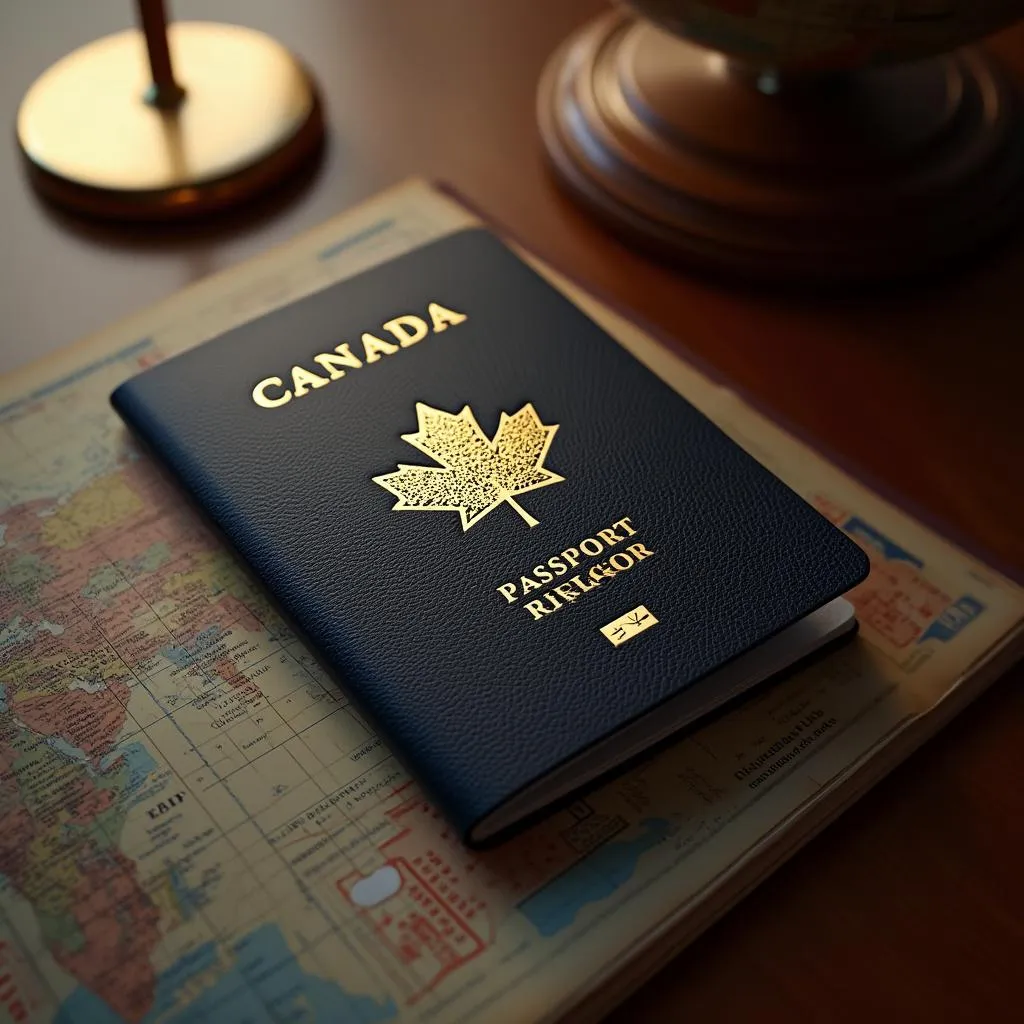In the latest Henley Passport Index, released on July 22, 2025, the Canadian passport has once again surpassed its US counterpart, reinforcing its position as one of the world’s most powerful travel documents. This ranking underscores the ongoing shifts in global travel freedom, with Canada maintaining a strong lead over its southern neighbor.
As of July 2025, the Canadian passport is ranked 8th globally, offering visa-free access to 184 countries. This position is shared with the UAE and Estonia. In contrast, the US passport has dropped to 10th place, marking the second consecutive time Canada has outranked the US since the index began in 2006.
The Henley Passport Index, which uses data from the International Air Transport Association (IATA), evaluates passports based on the number of countries their holders can visit without a prior visa. This methodology provides a clear measure of global travel freedom, making the index a widely recognized authority in the field.
Recent changes in rankings show Canada dropping from 7th place with 188 accessible destinations in January 2025 to its current 8th position with 184. Despite this slight decline, Canada still offers more global mobility than the US, whose passport has seen a more significant fall and is at risk of exiting the top 10 for the first time in the index’s history.
Historically, the Canadian passport has consistently ranked high, placing 7th in 2024 and 8th in 2023. However, over the past decade, it has dropped three ranks from its 4th place in 2015. The US passport, meanwhile, continues its downward trend, widening the mobility gap between the two North American neighbors.
Visa policy changes have also impacted Canadian travelers. While Egypt and Brazil lifted restrictions in 2025, enhancing access for Canadian citizens, Gabon and Togo now require visas, slightly reducing the ease of travel to these destinations.
These developments highlight the dynamic nature of global travel freedom and the factors influencing passport power. As the world’s travel landscape continues to evolve, the Henley Passport Index remains a key indicator of these changes, offering insights into the shifting mobility opportunities for travelers worldwide.
The latest Henley Passport Index also reveals broader trends in global mobility, with significant implications for international travelers. While Canada’s passport remains a powerful travel document, its slight decline from 7th to 8th place highlights the competitive and ever-changing nature of global visa policies. This shift, despite the addition of visa-free access to two new countries—Egypt and Brazil—underscores the dynamic nature of international travel requirements.
The US passport’s decline to 10th place marks a critical juncture, as it risks falling out of the top 10 for the first time since the Index began in 2006. This downward trend reflects broader geopolitical shifts and changing visa policies in several countries. The gap between the two North American neighbors continues to widen, with Canada offering visa-free access to 184 countries, compared to the US passport’s access to 182 destinations.
Historically, the Canadian passport has maintained a strong position in the rankings, though its trajectory shows a gradual decline over the past decade. In 2015, it held 4th place, with visa-free access to 185 countries. By 2023, it had dropped to 8th, before briefly rising to 7th in early 2025 with access to 188 destinations. This fluctuation highlights the delicate balance of global mobility and the impact of shifting visa policies.
The Henley Passport Index remains the most authoritative measure of travel freedom, providing insights into the complex interplay of geopolitics, economic relationships, and migration policies. As global travel demands evolve, the Index serves as a critical tool for understanding the opportunities and challenges faced by travelers worldwide.
Conclusion
The latest Henley Passport Index highlights the ongoing evolution of global travel freedom, with the Canadian passport maintaining its strong position as one of the world’s most powerful travel documents. Despite a slight drop from 7th to 8th place, Canada continues to offer superior mobility compared to the US, which has fallen to 10th place. These shifts underscore the dynamic nature of international visa policies and geopolitical influences. As global travel requirements continue to change, the Henley Passport Index remains a vital resource for understanding the complexities of travel freedom and planning for future journeys.
Frequently Asked Questions
Why did the Canadian passport’s ranking drop from 7th to 8th place?
The Canadian passport dropped from 7th to 8th place due to changes in visa policies. While Canada gained visa-free access to Egypt and Brazil, it lost access to Gabon and Togo, reducing its total number of accessible destinations from 188 to 184.
How does the Canadian passport compare to the US passport in the latest rankings?
The Canadian passport is ranked 8th, offering visa-free access to 184 countries, while the US passport is ranked 10th, offering access to 182 countries. This marks the second consecutive time Canada has outranked the US since the index began in 2006.
What factors influence the rankings of the Henley Passport Index?
The Henley Passport Index ranks passports based on the number of countries their holders can visit without a prior visa. The rankings are influenced by visa policy changes, geopolitical shifts, and economic relationships between nations.
How has the power of the Canadian passport changed over the past decade?
Over the past decade, the Canadian passport has gradually declined in rank, dropping from 4th place in 2015 to its current 8th place. Despite this, it remains one of the most powerful travel documents globally, offering extensive visa-free access to 184 countries.
Why is the Henley Passport Index important for travelers?
The Henley Passport Index provides a comprehensive measure of global travel freedom, helping travelers understand the mobility opportunities available to them. It also highlights the impact of geopolitical and economic changes on international travel requirements.



